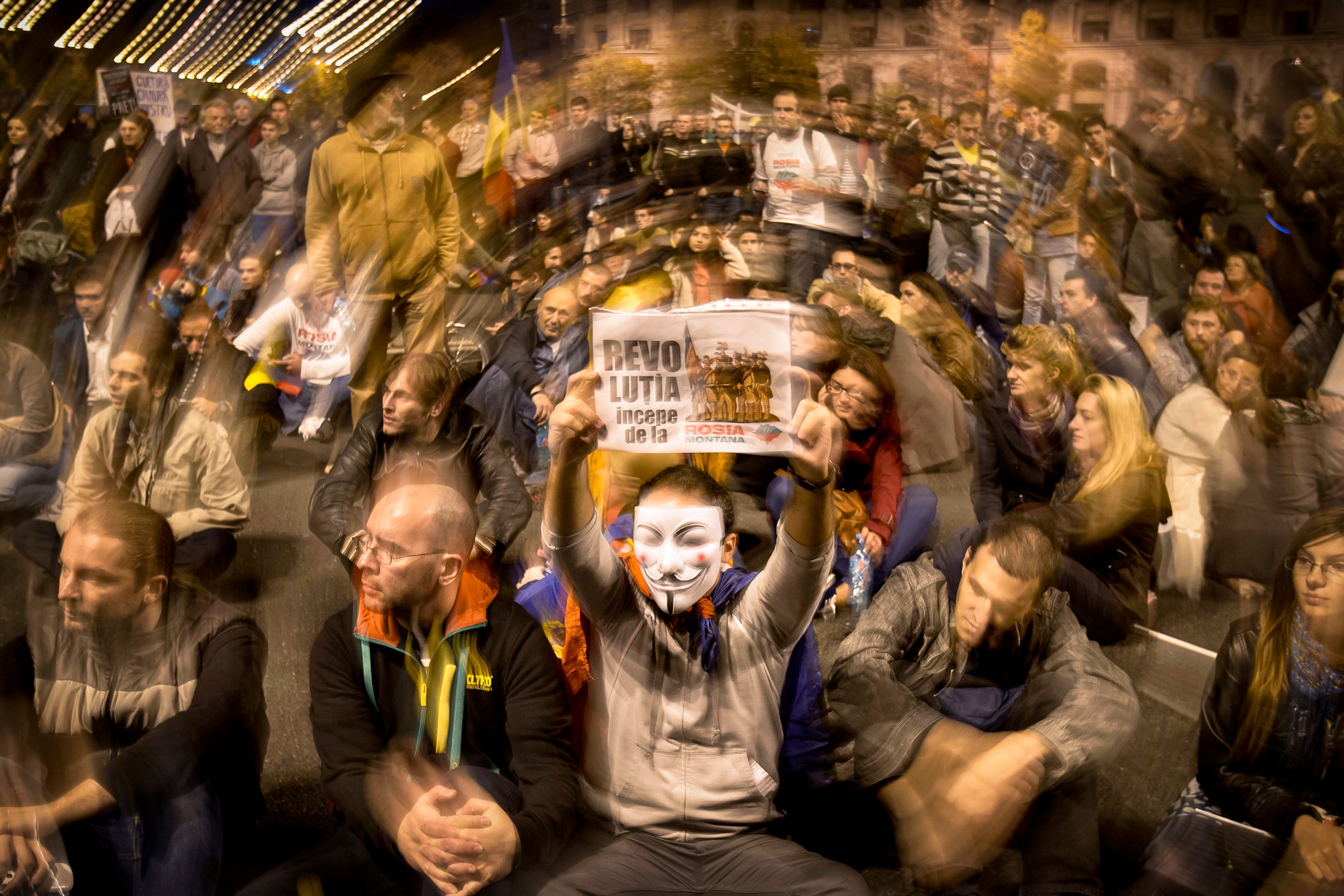Romania's Roman gold mines get UNESCO heritage status
Ancient mining galleries in an area of western Romania that has been at the center of a long, fierce battle between a Canadian mining company and environmentalists have been added to UNESCO’s list of World Heritage sites

Ancient Roman mining galleries in a mountainous Romanian region that has been at the center of a long, fierce battle between a Canadian mining company and environmentalists were added to UNESCO’s World Heritage list Tuesday.
Rosia Montana, located in western Romania, is home to Europe’s largest gold deposits. Gabriel Resources, a Canadian mining company that gained concession rights in 1999, planned to extract the gold and silver over a 16-year period.
The mining project, which the Romanian government owned a 20% stake in, also would involve razing four mountain tops, displacing hundreds of local families and leaving behind a waste lake containing cyanide, a toxic chemical used in the process of gold extraction.
The project drew opposition from environmental and civic activists who helped organize protests that drew tens of thousands of people to Romania's streets. Some of the activists called for the area to be included on the UNESCO list. The Romanian government withdrew its support for the project in 2014.
Rosia Montana Mayor Eugen Furdui, who had supported the mining project, told Romanian news channel Digi24 that UNESCO heritage status would not bring any benefits to local residents or the country.
But Romanian President Klaus Iohannis welcomed UNESCO’s decision. “Through joint efforts of the authorities and specialists, Rosia Montana must become a model of value for heritage through the sustainable development of the area,” he said Tuesday.
The mining company, which invested hundreds of millions in developing the project, is seeking $4.4 billion (3.7 billion euros) in damages from the Romanian state for its losses. It said the project would have provided jobs in an area where employment opportunities are scarce.
“The UNESCO application was strongly opposed by the local communities in and around Rosia Montana," Gabriel Resources said in a statement Tuesday.
“Most of the cultural heritage for which protection is sought through the UNESCO application and which was identified by the extensive archaeological research programs funded by Gabriel, would have been protected in any event by the project," the company statement said.
Oxford University archaeology professor Andrew Wilson one of three British experts who published a 2011 report on Rosia Montana’s cultural value, told The Associated Press he hoped the UNESCO designation would “end decades of (planned) blight and enable the formulation of a plan for the protection of the cultural heritage.”
“Rosia Montana is a landscape of great cultural importance — a palimpsest of mining activity from Roman times through the Austro-Hungarian period to the Communist era,” Wilson said.
Deputy Prime Minister Dan Barna also cheered the UNESCO listing.
“We fought for years to protect the history and environment of Rosia Montana, and today we received extraordinary news,” Barna wrote online. “I am glad this site was finally able to achieve international recognition.”
Bookmark popover
Removed from bookmarks